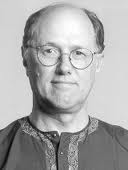Tap into the Power of Meditation
by George Wolfe
Last January I was invited to speak about meditation to a stress management class at Ball State University. I began by explaining the health and wellness benefits of meditation which, since the 1970’s, have been well documented in scientific journals. I then led the class through a 10-minute meditation so the students could experience the mental and physical relaxation that occurs during the practice.
One of the students came up after class to show me an application she had on her I-phone that was synced to a wristband she was wearing. Unbeknownst to me and the course instructor, she had been using this application to monitor her heartbeat during a previous aerobic exercise class, and had left the device on during our stress management class. The I-phone data screen helped to verify the scientific studies I had explained earlier. We were able to compare her heart rate during her aerobic exercise class with her resting heart rate while sitting listening to my lecture, and then also while meditating. The data clearly showed that her pulse had slowed during meditation as compared to her resting heart rate.
Because of the heightened awareness and the physiological changes that occur during meditation, the Indian scripture known as the Upanishads refers to meditation as “Turiya” or the fourth state of consciousness, distinctly different from the three more familiar states of waking, dreaming and deep sleep.
People who ascribe to a particular religion often use chanting or prayer as a vehicle for turning the attention inward and settling the mind into the meditative state. There are however, secular approaches to entering meditation that can be practiced by nonbelievers, many of which utilize breathing exercises.
A contemplative approach to meditation enables a person to restore the mind to its natural condition of tranquility. The silence at the depths of the mind comes to the foreground of our experience while mental activity recedes into the background and can even subside altogether. Consistent practice awakens our faculties of insight and realization. We come to appreciate, and are more receptive to, that level of the mind within which epiphanies dawn.
Buddhist master Thich Nhat Hanh refers to this as vipasyana, meaning “insight” or “looking deeply.” Christian contemplative Thomas Merton calls it “interior prayer,” a process of reflection that involves “not only the mind but also the heart, and indeed our whole being.” It is a practice that enables a person to perceive and appreciate the world on more profound levels, enriching life with deeper levels of meaning.
Through meditation we come to recognize the interdependent relationships that lie beneath the superficial realms of experience, perceptions which, unlike classical science, bestow upon us interpretative wisdom rather than offer mere facts.
Action proceeds from thought and influential thought comes from insight. We gain greater access to our insights through meditation. The deeper our meditations the more profound our insights, the more powerful our thoughts and the more influential will be our actions.
This is why simply being a good person is not good enough. If our daily actions are not rooted in deep insight, what we perceive as good is little more rule-based morality. What we perceive as virtue remains tainted with ego. It is insight that enables one to intuitively recognize the path of action that completely fulfills the needs of the present moment.
Anyone interested in learning meditation can contact the Lifeworks Center in Muncie at 765-286-8221.
—————————-
George Wolfe is Professor Emeritus at Ball State University and former Director and Coordinator of Outreach Programs for the Ball State University Center for Peace and Conflict Studies. He also chairs the Muncie Interfaith Fellowship, is a trained mediator, and is the author of Meditations on Mystery: Science, Paradox and Contemplative Spirituality.



